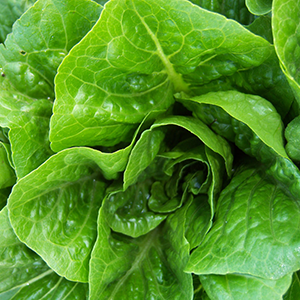
Local Cases of E. coli Could Be Linked to Romaine Lettuce Outbreak
Two Spokane County individuals, each under the age of 10, were confirmed to have E. coli O157:H7 infections that could be linked to romaine lettuce from the Yuma, Arizona growing region. The first case was acquired out of state around the first week of April. The second case was acquired through contact with the original case. Both individuals have recovered and neither child developed hemolytic uremic syndrome (HUS), a type of kidney failure that can result from an E. coli infection.
Connection to national outbreak
The national outbreak related to romaine lettuce has been ongoing since mid-March. As of April 26, 98 people ill from a matching E. coli 0157:H7 infection have been reported from 22 states, including three additional cases from Washington state (all in King County). The Centers for Disease Control and Prevention (CDC) and the Food Drug Administration (FDA) have been looking into these cases and so far, the information indicates that romaine lettuce from the Yuma, Arizona growing region could be contaminated and make people sick.
Consumer advice about romaine lettuce
The CDC has issued advice to protect consumers:
- Avoid all romaine lettuce from the Yuma, Arizona growing region, including whole heads and hearts of romaine lettuce, chopped romaine, and salads and salad mixes containing romaine lettuce.
- Do not eat or buy romaine lettuce unless you can confirm it is not from the Yuma, Arizona, growing region.
- Product labels often do not identify growing regions, so don’t eat or buy it if you don’t know where it was grown. If you do not know if the lettuce is romaine, do not eat it.
Symptoms of E. coli
Talk to your healthcare provider if you have symptoms of an E. coli infection: diarrhea that can be bloody, severe stomach cramps, and vomiting. Anyone who is ill with suspected E. coli should not work in food handling, patient care, or childcare settings. Ill children with suspected E. coli should not attend daycare until they have seen a healthcare provider and been tested for E. coli infection even if their illness is mild.
What do restaurants and retailers need to do?
Retailers, restaurants, and other food service operators should not sell or serve any romaine lettuce from the winter growing areas in Yuma, Arizona. This includes whole heads and hearts of romaine, chopped romaine, baby romaine, organic romaine, and salads and salad mixes containing romaine lettuce. If you cannot verify the source of your romaine lettuce, do not sell or serve it.
Food workers should always take steps to avoid the cross contamination of cutting surfaces and utensils through contact with potentially contaminated products. As a reminder, follow these precautions:
- Regularly wash, rinse and sanitize display cases, cutting boards, refrigerators, and other food contact surfaces where potentially contaminated products were stored in order to avoid cross contamination of surfaces.
- Wash hands with hot water and soap following the cleaning and sanitation process.
- Always wash all leafy greens (e.g., romaine lettuce) with water thoroughly with water before use.
- Always store cut leafy greens in refrigerator under temperature control 41ºF or below.
If you have questions please call Spokane Regional Health District's Communicable Disease Epidemiology program at (509) 324-1442.
More information
For more about the national outbreak, visit the CDC’s webpage.
For more on E. coli, visit Spokane Regional Health District's webpage on shiga-toxin producing E. coli.

